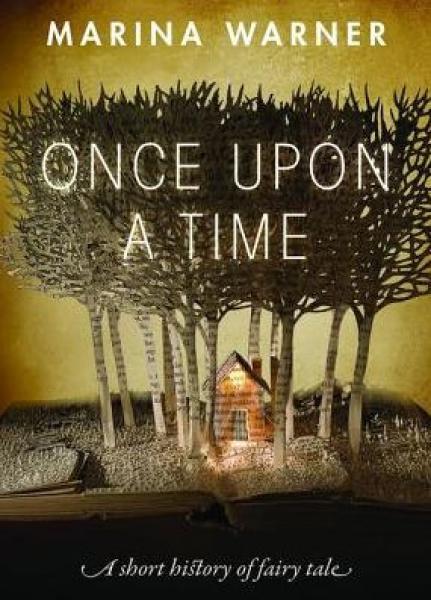Description
But what is a fairy tale? Where do they come from and what do they mean? What do they try and communicate to us about morality, sexuality, and society? The range of fairy tales stretches across great distances and time; their history is entangled with folklore and myth and their inspiration draws on ideas about nature and the supernatural, imagination and fantasy, psychoanalysis, and feminism.
Marina Warner has loved fairy tales over a long writing life and in Once Upon a Time, she explores a multitude of tales through the ages, their different manifestations on the page, the stage, and the screen. From the phenomenal rise of Victorian and Edwardian literature to contemporary children's stories, Warner unfolds a glittering array of examples, from classics such as Red Riding Hood, Cinderella, and The Sleeping Beauty, the Grimm Brothers' Hansel and Gretel, and Hans Andersen's The Little Mermaid, to modern-day realizations including Walt Disney's Snow White and gothic interpretations such as Pan's Labyrinth.
In 10 succinct chapters, Marina Warner digs into a rich hoard of fairy tales in their brilliant and fantastical variations in order to define a genre and evaluate a literary form that keeps shifting through time and history. Her book makes a persuasive case for fairy tale as a crucial repository of human understanding and culture.
[Warner] presents a thoughtful, discursive and often personal survey of how 'fairy tale' has expressed itself over the centuries.... Both a beguiling appreciation of and a fascinating tour through faery, this offers riches aplenty for lovers of fantasy fiction, children's literature and the tales themselves. --Kirkus Reviews
[A]nyone interested in reading about the history of tales they first encountered in childhood will be edified and entertained. --Publishers Weekly
[An] enchanting history of fairy tales.... A thought-provoking work for fans of history, sociology, literature, and film. Warner's writing is free of theoretical jargon and will appeal to readers of all types. --Library Journal
[Warner] draws together her research, touching on anthropology, psychoanalysis, literary analysis and an expansive history. For such a small book it carries a heavy load, but Ms. Warner's insights are both surprising and rewarding. --The Economist
Once Upon a Time is a perfect 'short history of the fairy tale.' The writing is pungent, the authority unassailable, the pace quick.... Warner, in short, knows fairy tales better than Mother Goose herself. --Michael Dirda, Washington Post
In this lively, scholarly work, Warner surveys centuries of fairy tales and academic research about them. She ties these tales to virtually every aspect of culture--mythology, art, music, movies, games, and psychology. We need them, she says, to make sense of the world. --Charles Euchner, Boston Globe
[B]esides the wealth of information here, the strongest readerly pleasures are her associations with and riffs on the many, many things fairy tales touch.... Once Upon a Time is clearly an academic book, but it soars beyond its practical purpose and into the realm of pure delight, where it will find a grateful readership in the general public. --The New York Times Book Review
[A] beautifully written, thought-provoking short study.... --Shepherd Express
This book could be written only by one who has known the field intimately over a long period. It is rich, clear, elegant, condensed...it is a perfect introduction for undergraduates and those beginning study in the field. Each chapter has a bibliography of the chief sources and suggestions for further reading; there is a helpful index. But what Once Upon a Time: A Short History of Fairy Tale offers most is a masterly synopsis of the complex, surprising, and serious aesthetic and cultural work of the fairy tale over time and in this moment. Once Upon a Time invites new exploration of the marvelous terrain while offering--unlike Hansel's breadcrumbs--a sense of where we've come from. -- Papers on Language and Literature
Product Details
- Oxford University Press, Brand
- Sep 28, 2016 Pub Date:
- 0198779852 ISBN-10:
- 9780198779858 ISBN-13:
- 232 Pages
- 0.5 in * 4.6 in * 6.6 in Dimensions:
- 1 lb Weight:




